On the morning of November 20, during the discussion in the hall about the draft Law on Higher Education (amended), many National Assembly deputies agreed with the principle of university autonomy, in which schools are responsible for themselves along with accountability. However, the draft law still does not have clear quantitative criteria to determine the level of autonomy of higher education institutions, which has caused many concerns: financial autonomy can become a double-edged sword, causing some schools to lower standards to attract students, leading to a decrease in quality after the merger.
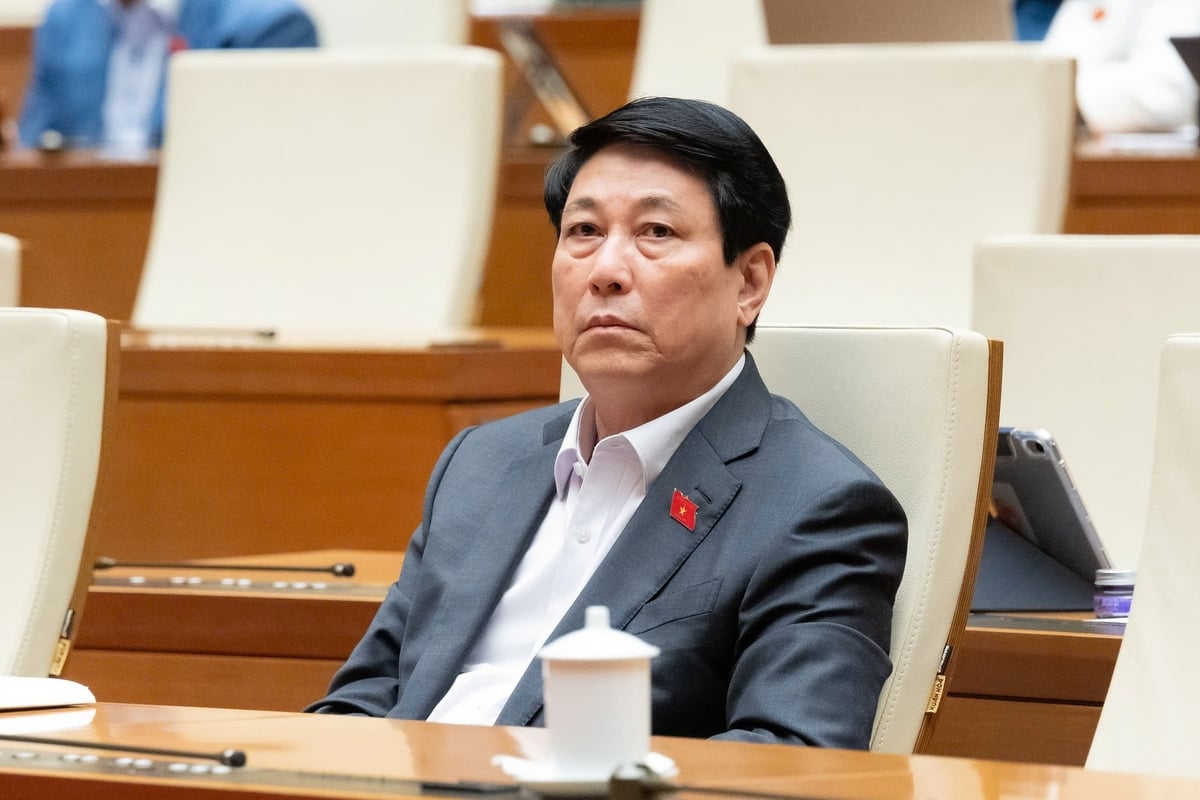
President Luong Cuong attends the meeting. Photo: Quochoi.vn
Delegate Nguyen Quang Huan (HCMC) emphasized that the Government's Proposal 819 affirmed the need to amend the Law on Higher Education to meet Resolution 71 of the Politburo , which requires creating a breakthrough in education and confirming the autonomy of training institutions. The draft law explains: "Autonomy is the right to proactively decide and be accountable according to the law on professional academic activities, training, scientific research, international cooperation, human resource organization, finance and other areas".
According to delegates, this regulation closely follows the spirit of Resolution 71, which clearly states the building of a strategic framework for higher education development, merging and dissolving substandard facilities, eliminating intermediate levels and transferring some schools to local management to improve efficiency.
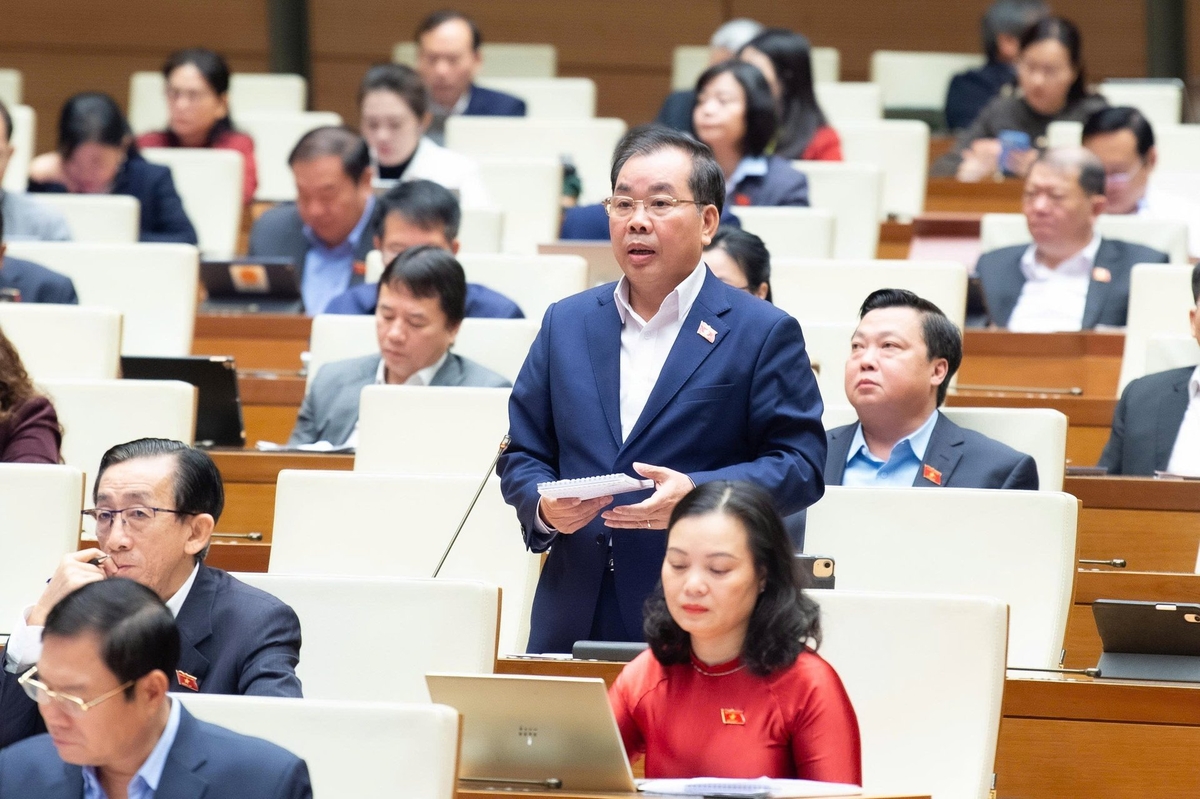
Delegate Nguyen Quang Huan (HCMC). Photo: Quochoi.vn
However, Mr. Huan said that the concept of “university education institution” in the draft law is not reasonable. “National universities and regional universities have many facilities below. If we consider large universities such as corporations or general companies as ‘facilities’, we will not pay due attention to the affiliated units, where autonomy needs to be increased,” he analyzed.
According to the delegate, mechanical mergers do not always make the school stronger. He cited: “When Hanoi University of Science and Technology develops into a university with many new schools, it will be truly strong in terms of internal strength. If mechanical mergers occur, developing facilities may be limited, or even worse, because they lose financial autonomy and have to lower standards to attract students.”
This reality has also happened to some universities after mergers. Previously, these institutions were very strong, but after the merger and having to be financially autonomous, the number of incoming students decreased, forcing them to lower standards, thereby reducing the quality of training. Delegate Huan emphasized: “If we do not correctly define the concept of higher education institutions, we will allocate resources unreasonably, focusing on large 'bodies' while ignoring important 'cells' to create a strong foundation.”
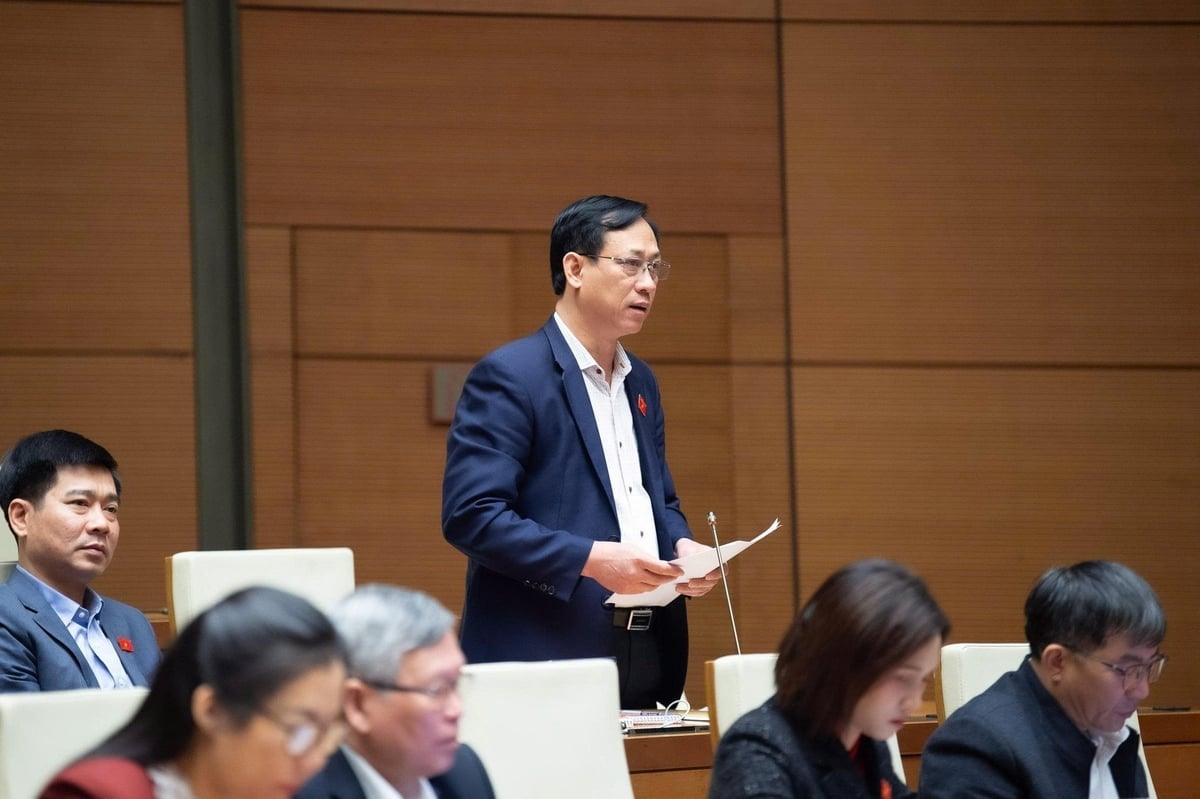
Delegate Mai Van Hai (Thanh Hoa). Photo: Quochoi.vn
Regarding the criteria for assessing autonomy, delegate Mai Van Hai (Thanh Hoa) said that the draft law lacks quantitative indicators to determine the level of autonomy of higher education institutions, especially in finance and human resources. He suggested adding requirements such as an internal control system, an independent audit mechanism, periodic and public reporting. At the same time, it is necessary to clarify the relationship between the autonomy of schools and the management rights of the State, ministries and localities to avoid misunderstanding autonomy as absolute freedom.
Delegate Hai also commented on the management mechanism of private higher education institutions: “Public higher education institutions need to have their development strategies approved by the direct management agency, while private institutions must be approved by investors, in accordance with the higher education strategy. At the same time, investors must publicize their financial capacity, capital sources and the implementation status of investment commitments, ensuring sustainability and operational efficiency.”
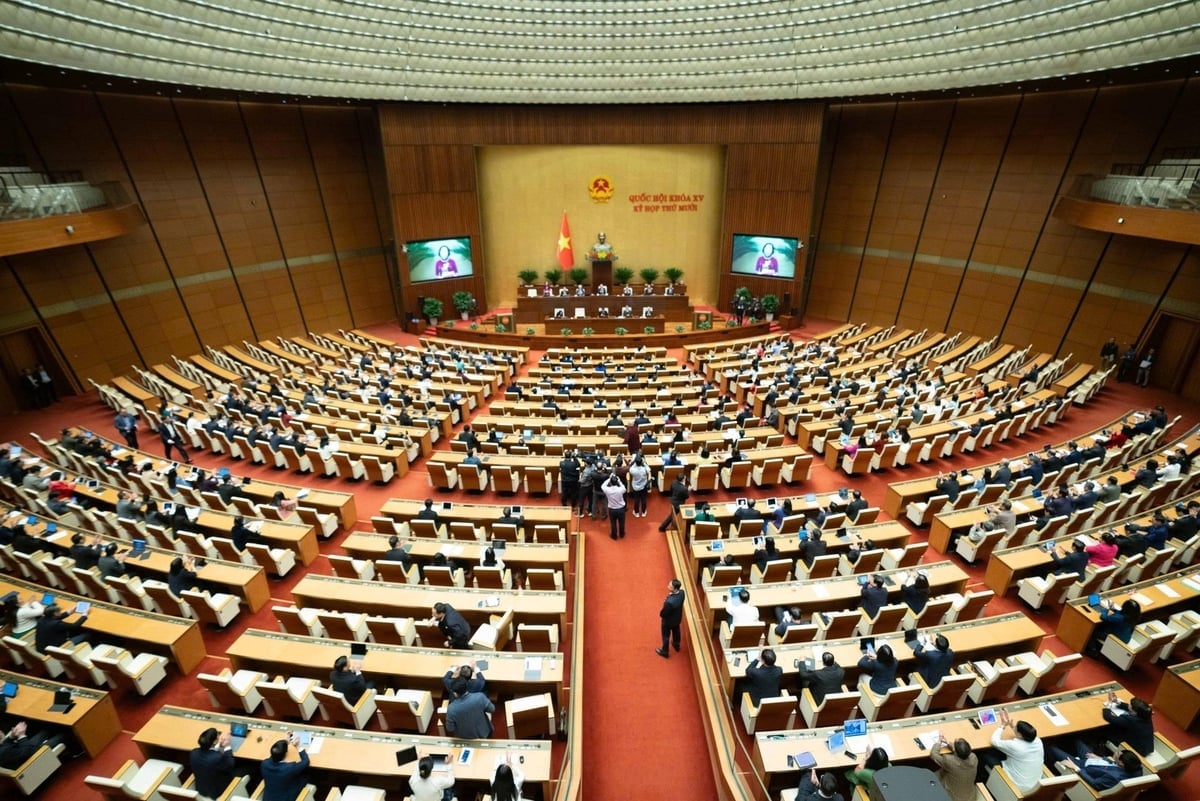
Overview of the meeting on November 20. Photo: Quochoi.vn
The report on the review of the draft law by the Committee on Culture and Society approved the regulations on the organization and administration of higher education institutions, and said that the draft has institutionalized the spirit of Resolution 71, ensuring full and comprehensive autonomy for higher education institutions regardless of the level of financial autonomy. However, the Committee proposed that the Government issue a separate guiding document on university autonomy, clearly stipulating the level of autonomy based on administrative capacity, educational quality and financial capacity; at the same time, clarifying the powers and responsibilities of the parties in supervising activities when terminating the school council and the position and functions of affiliated units.
Source: https://nongnghiepmoitruong.vn/tu-chu-tai-chinh-khien-mot-so-truong-dai-hoc-kem-di-sau-sap-nhap-d785455.html





![[Photo] Lam Dong: Panoramic view of Lien Khuong waterfall rolling like never before](/_next/image?url=https%3A%2F%2Fvphoto.vietnam.vn%2Fthumb%2F1200x675%2Fvietnam%2Fresource%2FIMAGE%2F2025%2F11%2F20%2F1763633331783_lk7-jpg.webp&w=3840&q=75)
![[Photo] National Assembly Chairman Tran Thanh Man holds talks with South Korean National Assembly Chairman Woo Won Shik](/_next/image?url=https%3A%2F%2Fvphoto.vietnam.vn%2Fthumb%2F1200x675%2Fvietnam%2Fresource%2FIMAGE%2F2025%2F11%2F20%2F1763629724919_hq-5175-jpg.webp&w=3840&q=75)
![[Photo] President Luong Cuong receives President of the Senate of the Czech Republic Milos Vystrcil](/_next/image?url=https%3A%2F%2Fvphoto.vietnam.vn%2Fthumb%2F1200x675%2Fvietnam%2Fresource%2FIMAGE%2F2025%2F11%2F20%2F1763629737266_ndo_br_1-jpg.webp&w=3840&q=75)
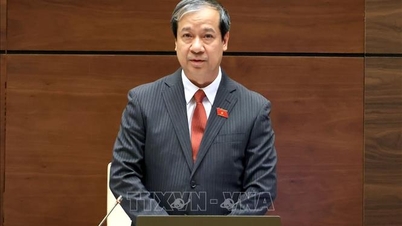

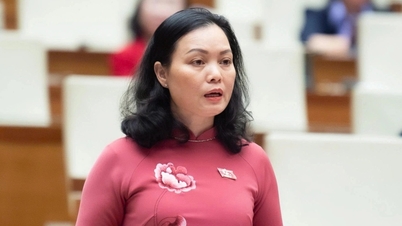

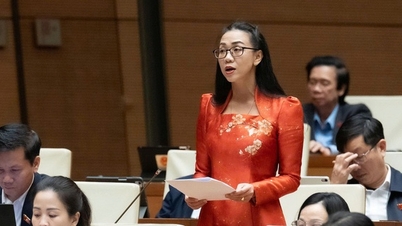

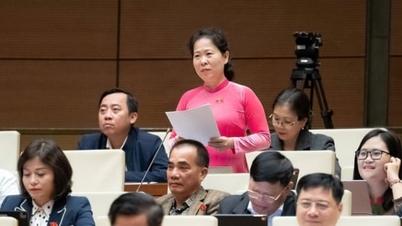
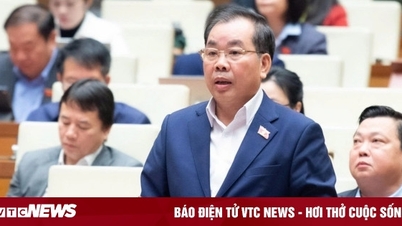

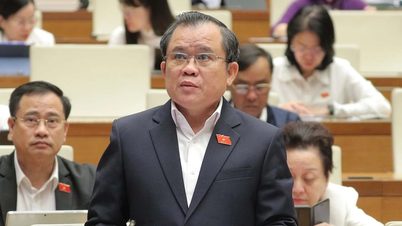


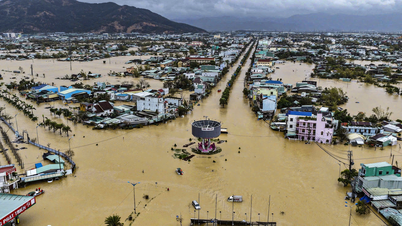


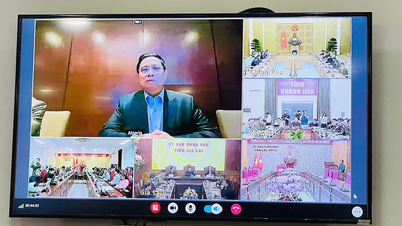
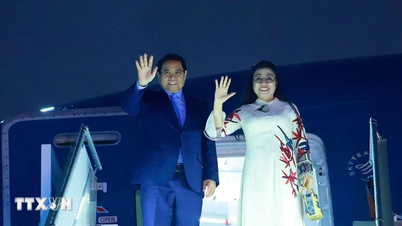

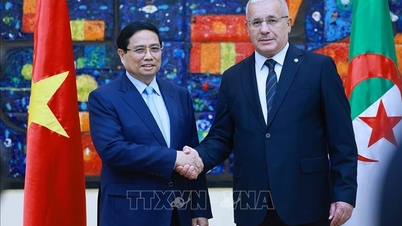




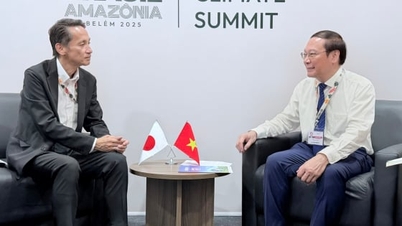
















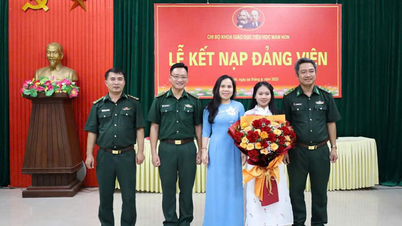




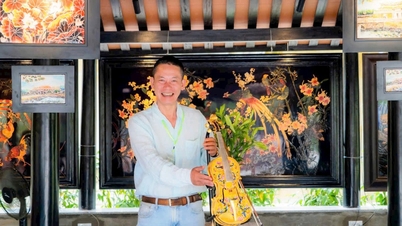


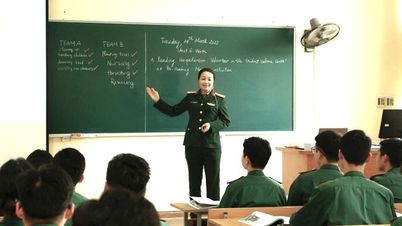
















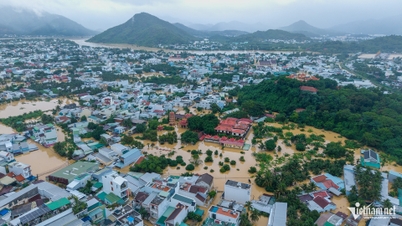
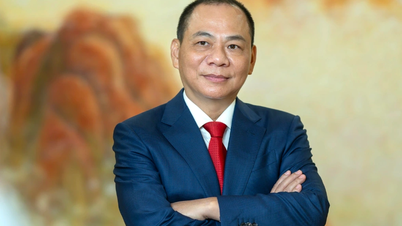

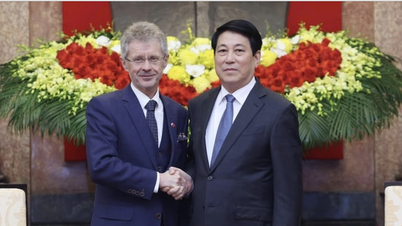
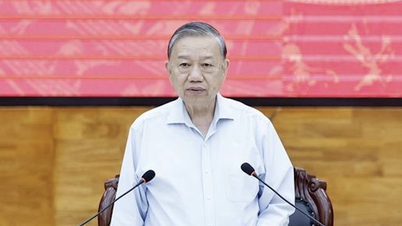



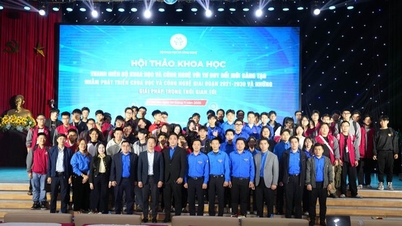

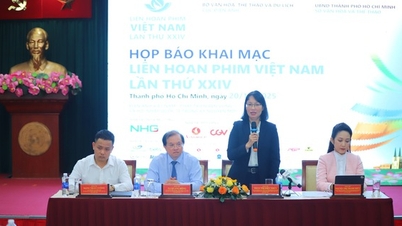

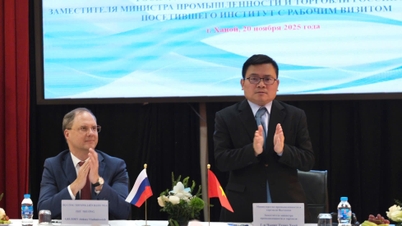
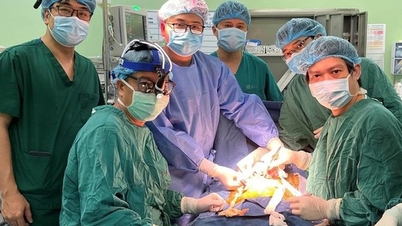
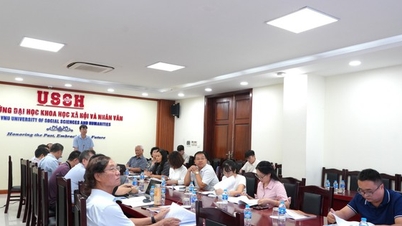



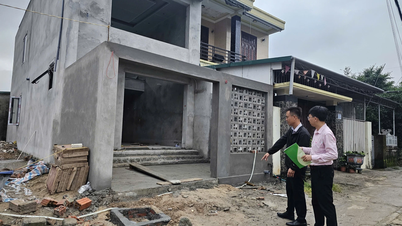


















Comment (0)